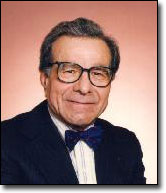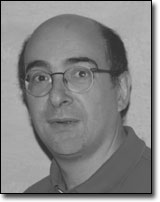
2005 IEEE International Conference on Acoustics, Speech, and Signal Processing
March 18-23, 2005 • Pennsylvania Convention Center/Marriott Hotel • Philadelphia, PA, USA
ICASSP
30th Anniversary
Tutorial TUT-9: From Kalman to particle filtering
Instructors
S. Haykin; McMaster University
E. Moulines; ENS des Telecommunications
Time & Location
Saturday, March 19, 09:00 - 12:00, Location: CC: Room 113-C
Abstract
We begin the Tutorial by briefly outlining the many practical applications of Kalman filters. We then continue the motivation by describing in some detail a Case Study involving the application of different trackers (from Kalman to particle filters) to the joint channel and state estimation problem in multiple-input, multiple-output (MIMO) wireless communications. The Case Study will address the presentation of results using the following trackers, based on a fixed auto-regressive (AR) predictive model:
- Conventional Kalman filter
- Mixture Kalman filter
- Conventional particle filter
- Particle filter with gradient information
We then complete the Case Study by showing how the system performance can be significantly improved using a dynamic (AR) predictive model whose design is rooted in Bayesian forecasting.
In the course of this motivation, we will have described the advantages and disadvantages of conventional Kalman filters, and thereby set the stage for a detailed study of particle filters. A particular emphasis will be put on the different strategies which can be used to increase the efficiency of the particle filter:
- The choice of the proposal distribution (local linearization, EKF, )
- Rejection methods
- Auxiliary sampling (two-stage sampling)
- Kernel smoothing (Regularized particle filter)
- MCMC methods
We will finally outline the elementary aspects of the theory of particle filtering emphasizing the influence of the design parameters on the overall performance of the particle approximations.
Participants will be provided with handouts of the tutorial materials.
Prerequisites / Target Audience
Familiarity with statistical signal processing is expected. Basic knowledge of bayesian statistics (Kalman filter) and of simulation techniques would be helpful but is not a prerequisite. The tutorial is tailored to both graduate students and researchers in academia/industry who are willing to learn about how particle filter techniques can be applied to advanced signal processing problems.
Presenter Information
 Simon Haykin received his B.Sc. (first class honours),
Ph.D., and D.Sc., all in Electrical Engineering from the University of
Birmingham, England. After completing his Ph.D. studies, he spent several years
in the telecommunications industry and academe in England, whereafter he joined
McMaster University, Ontario, Canada, as a Full Professor, where he has stayed
ever since.
Simon Haykin received his B.Sc. (first class honours),
Ph.D., and D.Sc., all in Electrical Engineering from the University of
Birmingham, England. After completing his Ph.D. studies, he spent several years
in the telecommunications industry and academe in England, whereafter he joined
McMaster University, Ontario, Canada, as a Full Professor, where he has stayed
ever since.
Professor Haykin is Fellow of the IEEE, Fellow of the Royal Society of Canada, and recipient of the McNaughton Medal (IEEE Region 7), Honorary Doctorate of Technical Sciences from ETH, Switzerland, and the Henry Booker Medal from URSI. He is the author of numerous books that include Communication Systems (Wiley), Adaptive Filter Theory ( Prentice-Hall), Neural Networks (Prentice-Hall), and Modern Wireless Communications (Prentice-Hall); and numerous journal papers on signal processing, radar, and communications. His current research interests include Cognitive Radio, Cognitive Radar, Adaptive Hearing Systems for the Hearing Impaired, and the Passive Modeling and Identification of Multi-function Radars.
 Eric Moulines graduated from Ecole Polytechnique in Paris
in 1984 and from Ecole Nationale Supérieure des Télécommunications in 1986. He
received the PhD degree from Ecole Nationale Supérieure des Télécommunications
in 1990 in Signal Processing and an "Habilitation à Diriger des recherches" in
Applied Mathematics (Probability and Statistics) from Université René Descartes
(Paris V) in 1996. From 1986 until 1990, he was a member of the technical staff
at CNET. In 1990 he joined Ecole Nationale Superieure des Télécommunications
where he is presently a full Professor.
Eric Moulines graduated from Ecole Polytechnique in Paris
in 1984 and from Ecole Nationale Supérieure des Télécommunications in 1986. He
received the PhD degree from Ecole Nationale Supérieure des Télécommunications
in 1990 in Signal Processing and an "Habilitation à Diriger des recherches" in
Applied Mathematics (Probability and Statistics) from Université René Descartes
(Paris V) in 1996. From 1986 until 1990, he was a member of the technical staff
at CNET. In 1990 he joined Ecole Nationale Superieure des Télécommunications
where he is presently a full Professor.
Professor E. Moulines served on the editorial board of the IEEE Transactions on Signal Processing (1995-1999) and is a member of the IEEE committee "Signal processing: Theory and Methods". In France, he has been in charge of the coordinated research network “Mathematics for Signals and Systems” and is a member of the National Committee of scientific research (2004-).. His current research interests include applied probability (Markov chain theory), mathematical and computational statistics (Markov Chain Monte Carlo, population methods, Hidden Markov Models) and statistical signal processing (tracking, inverse problems). He has (co-)authored more than 150 papers both in applied probability, statistics and signal processing. He is the co-author (with O. Cappé and T. Ryden) of a book Inference in Hidden Markov Models (Springer Series in Statistics, 2005).